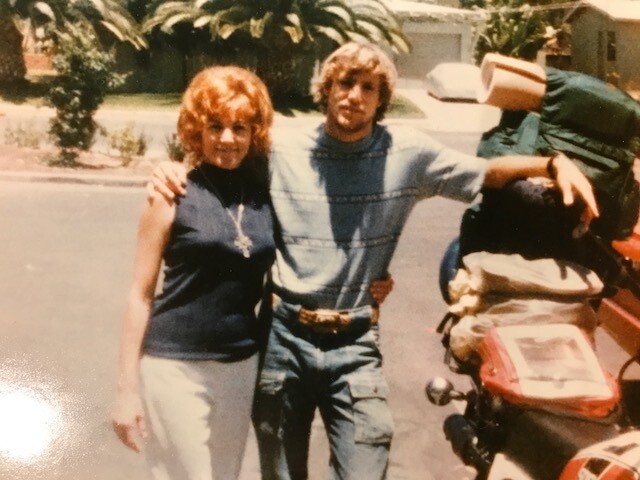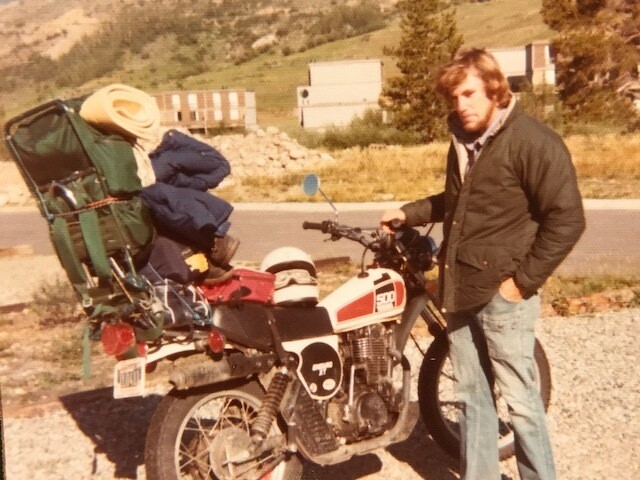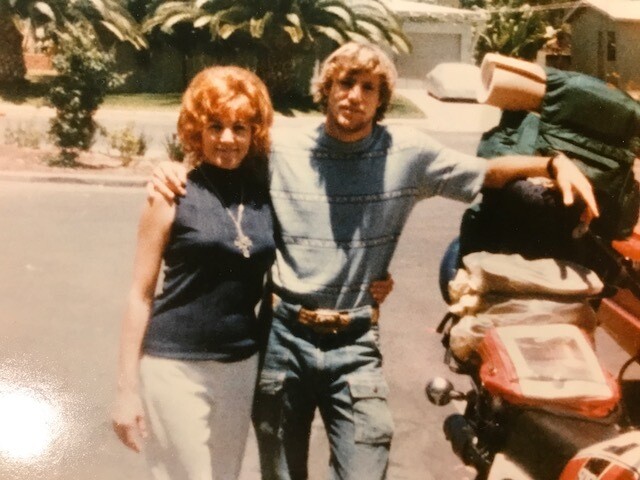I recently took a personality test online and—to nobody’s surprise, including my own—it labeled me an introvert. I prefer to turn off the music when I’m driving, I’m more at ease speaking in front of 500 people than mingling with them afterward, and I’m happy typing for hours at my computer, alone. In fact, I always find it amusing in movies when a prisoner is locked in solitary confinement as a horrific punishment—because, to me, it sounds rather relaxing.
I think it’s fair to say that I am exactly the opposite of John Sylvester.

I first met John (we called him Sly) in Los Angeles in 1979 (yes, I’m very old). I was barely 19 and had just started two years of Church missionary service, serving temporarily in the Los Angeles mission with a group of “visa elders.” It was a purgatory of sorts, where we impatiently waited for our travel visas to clear, hoping to soon get to our real missions, which in my case meant Mexico City.
While I’m sure it was unintended, a result of our temporary circumstance, it seemed that as visa elders we were the mission’s transient stepchildren. Everyone took it for granted that we wouldn’t be around long enough to do much good or cause much damage, so we were never taken seriously—except by Elder Sylvester.
Elder Sly was older, perhaps 23 or 24, a recent convert to the faith, and was serving as an assistant to the mission president. Sly was one of those constantly cheerful people with a steady smile, abundant energy, and a big heart. He not only cared about us visa elders, he cared for anyone whose life touched his—no matter how inconsequentially.
I had just two or three personal interactions with Sly, but I will never forget them. The first was the day he and his companion came to do splits, meaning Sly and I would spend the day working together.
Sly and I walked toward his mission car. As a visa elder, I wasn’t allowed to drive (funny rule, but whatever). While the thought of being chauffeured around by someone sounds rather pleasant to me today, as a teenager, going months without feeling my fingers grip a steering wheel—well, it was almost torturous.
Because of this rule, I was surprised to have Sly toss me the keys and nod toward the driver’s seat. I remember muttering something like, “But I thought that visa elders weren’t supposed to—” And then his grin stopped the rest of the words from exiting my mouth. I quietly promised myself that when dealing with others, I wanted to be as considerate as Sly.
My next interaction was equally influential, and while I don’t remember where the exchange took place, I will never forget the story he related. Apparently, as a teenager, Sly got it into his head that the finest day of his life—the pinnacle of his very existence—would be the day he would ride his motorcycle across the Golden Gate Bridge. I can still remember the excitement in his words: “It would be the 4th of July, with a warm breeze blowing through my hair, the sun shining on my back, and strangers would longingly stare with awe and envy.”
Here’s the thing: Sly wasn’t just a dreamer. He had actually followed through on his vision, purchasing a bike, loading it with hope, and heading off toward the Golden Gate. “My journey just didn’t quite play out as I had expected,” he shared. “The day wasn’t sunny at all but rainy, cold, and miserable.”

As Sly related this life experience, I was spellbound by both his struggles and his persistence. So much so that years later, I worked his quest to ride across the bridge into the plot of a fictional novel I was writing called The Other Side of the Bridge. The thing I remember most, however, was his willingness to share something so personal with me. And, once again, I found myself thinking, I hope to one day have that much trust and confidence in others. Someday, I want to be like Sly.
After my visa finally came, I was sent to Mexico to serve the remainder of my mission. Except for a quick chance meeting several months after my return home, when we bumped into each other in a parking lot, I didn’t see Sly for some 35+ years—until I realized that the man who inspired my book deserved to hear about it.
It felt only proper to track down Sly and let him know about the influence he’d unknowingly had on my life—but the task wasn’t easy. It took an equal mixture of sleuthing and miracles, because he’s the type of person who prefers interacting with people face to face instead of using Facebook (I should have expected nothing less). A lunch date was set and I had the opportunity to shake the man’s hand as I had so many years ago and to learn where life had taken him.
Over lunch, I learned that Sly had met and married a girl he adored, but because she was Filipino, they soon discovered that the pains of prejudice, especially at church, can be sharp. As an officer in the Armed Forces, Sly had experienced physical trauma that is common among our military warriors. And as a father, he wept when he recounted the tragic and untimely death of his 19-month-old son.
As I listened, I marveled that he’d once again been so honest and open with someone he barely knew and hadn’t seen in over three decades—and I found myself one more time whispering, “I want to be like Sly.”
It’s a lesson that I feel is worth repeating: Next time that you’re chatting with the stranger seated beside you on a plane or making light conversation with the stressed-out mother in line behind you at the market or introducing yourself to the new teller who just started working at your neighborhood bank, quit fiddling with your phone, look that person in the eye, listen to what he or she is saying (or needing), and then respond with as much kindness and sincerity as you can muster. Be open. Be honest. Be vulnerable. Share your best self.
It’s not easy for introverts like me, but it’s an effort that can change lives. I’ve learned that firsthand. You see, it’s a lesson a friend of mine taught me; I’m going to be like Sly.
Lead image from Shutterstock. All other images courtesy of Camron Wright.
Camron Wright is the author of Letters for Emily, The Rent Collector, and The Orphan Keeper. His latest book, The Other Side of the Bridge, is now available in bookstores everywhere. For more information, visit AuthorCamronWright.com.




